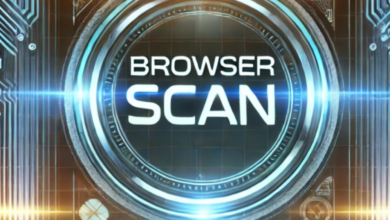Introduction
Programming has become one of the most sought-after skills in our tech-driven world. From building software to creating applications that power industries, coding lies at the heart of innovation. But what does it mean to truly become a programming insider? This guide aims to demystify programming, providing readers with the knowledge, tools, and inspiration to begin their journey or refine their skills. Whether you’re a beginner or looking to advance in your career, this article will serve as your roadmap to mastering the art of coding.
Understanding the World of Programming
1.1 What is Programming?
Programming is the process of creating instructions for computers to perform tasks. These instructions are written in programming languages that allow us to communicate with machines. From automating repetitive tasks to developing complex algorithms, programming has applications in nearly every aspect of modern life. Imagine your favorite apps, smart home devices, or even the software running your car—all of these exist because of programming. It’s not just a technical skill but a creative tool that empowers you to turn ideas into reality.
1.2 Common Misconceptions About Programming
Many believe that programming is only for geniuses or mathematicians. This couldn’t be further from the truth. Programming is accessible to anyone willing to learn and practice. Another misconception is that you need to know every programming language. The reality is, mastering one or two languages based on your goals is often enough to start. Programming isn’t about memorizing code; it’s about solving problems and thinking logically.
1.3 Popular Programming Languages

The programming world is vast, with languages catering to different needs. Python is ideal for beginners due to its simplicity and versatility. JavaScript powers dynamic web pages, while Java is a staple for enterprise applications. For those interested in game development, C++ reigns supreme. Choosing a language depends on your objectives, whether it’s web development, data science, or mobile app creation.
Building the Foundation for Coding Success
2.1 Essential Skills for Programmers
Successful programmers possess more than technical knowledge. Logical thinking and problem-solving are fundamental. Coding often involves breaking down complex problems into smaller, manageable parts. Basic math skills are helpful, especially in fields like data science or algorithms. However, creativity and attention to detail are equally important. Writing clean, efficient code requires precision and an eye for optimization.
2.2 Tools and Resources Every Programmer Needs
Programming tools streamline the coding process and enhance productivity. Integrated Development Environments (IDEs) like Visual Studio Code or PyCharm provide a comprehensive space for writing and debugging code. Version control systems like Git allow programmers to track changes and collaborate on projects. Additionally, debugging tools and online resources such as Stack Overflow or documentation repositories are indispensable for troubleshooting and learning.
2.3 Learning Programming: Best Practices
Learning to code is a journey that requires consistent programming effort. Begin with small projects that align with your interests. Whether it’s building a personal blog or automating tasks, hands-on experience is invaluable. Online platforms like Codecademy, FreeCodeCamp, and Khan Academy offer interactive lessons to guide beginners. The key is to practice regularly and seek feedback from peers or mentors to improve continuously.
Exploring Advanced Topics and Career Opportunities
3.1 Advanced Programming Concepts
Once you’ve mastered the basics, delving into advanced topics will expand your capabilities. Understanding data structures and algorithms is crucial for efficient problem-solving and competitive coding. Object-oriented programming (OOP) introduces concepts like inheritance and polymorphism, which simplify complex systems. Emerging fields like machine learning and artificial intelligence provide exciting opportunities to apply programming in groundbreaking ways.
3.2 Specializations in Programming
Programming offers diverse career paths. Front-end developers create visually appealing user interfaces, while back-end developers manage the logic and databases that power applications. Data scientists analyze and interpret data to drive decision-making, while cybersecurity experts protect systems from threats. Exploring different specializations allows you to find your niche in the industry.
3.3 Careers in Programming
The demand for programmers continues to grow across industries. Roles such as software engineer, mobile app developer, and cloud architect offer competitive salaries and career progression. According to industry reports, programming jobs are expected to grow significantly in the coming years, making it an excellent time to enter the field. Building a strong portfolio and staying updated with industry trends will ensure long-term success.
Becoming a True Programming Insider
4.1 Staying Updated in a Fast-Paced Field
Technology evolves rapidly, and staying relevant requires continuous learning. Follow programming blogs, join online communities, and subscribe to newsletters to keep up with the latest trends. Attending coding bootcamps and hackathons is another excellent way to network with like-minded individuals and learn cutting-edge techniques.
4.2 Building a Strong Programmer Portfolio
A portfolio is a powerful tool to showcase your skills to potential employers or clients. Include projects that demonstrate your expertise and creativity, such as web applications, games, or data visualizations. Platforms like GitHub allow you to share your code and collaborate with others, highlighting your teamwork and problem-solving abilities.
4.3 Overcoming Challenges in Programming
Programming can be challenging, especially when dealing with bugs or complex problems. Patience and persistence are essential traits for every programmer. Break down issues into smaller parts and use debugging tools to identify errors. Avoid burnout by taking breaks and maintaining a healthy work-life balance. Remember, every problem solved is a step toward becoming a better coder.
Conclusion
Programming is not just a technical skill; it’s a gateway to endless opportunities. This guide has outlined the foundational knowledge, tools, and strategies needed to become a programming insider. Whether you’re just starting or aiming to advance your career, the key is to stay curious and never stop learning. The world of programming is vast and ever-changing, but with dedication, you can master it and create impactful solutions that shape the future.
FAQs
- What is the best programming language for beginners?
Python is often recommended for beginners due to its simple syntax and versatility.
- How long does it take to become proficient in programming?
It depends on your learning pace and dedication, but most beginners see progress within 3-6 months of consistent practice.
- Are coding bootcamps worth it for a programming career?
Yes, coding bootcamps can provide intensive, hands-on training and networking opportunities to jumpstart a programming career.
- Do I need a degree to work as a programmer?
No, many programmers are self-taught or have non-traditional educational backgrounds. Skills and experience often matter more than formal qualifications.
- What are the most common challenges faced by new programmers?
New programmers often struggle with debugging, understanding advanced concepts, and staying motivated during tough times.
- How can I start contributing to open-source projects?
Begin by exploring projects on GitHub. Look for beginner-friendly issues and start with small contributions to build confidence.
- What are some must-read resources for programming insiders?
Books like “Clean Code” by Robert C. Martin and blogs like HackerRank or Medium’s programming section are great resources.
- How can I transition into programming from a non-technical background?
Start with online courses tailored for beginners, practice consistently, and build a portfolio to demonstrate your skills.
- Is it necessary to learn algorithms and data structures for every programming job?
Not always, but they are crucial for roles involving complex problem-solving, such as software engineering.
- How do I find a mentor to guide my programming journey?
Join online communities, attend meetups, and engage with professionals on LinkedIn to find mentors who align with your goals.
You May Also Read:https://daliyuknews.com/browserscan/




